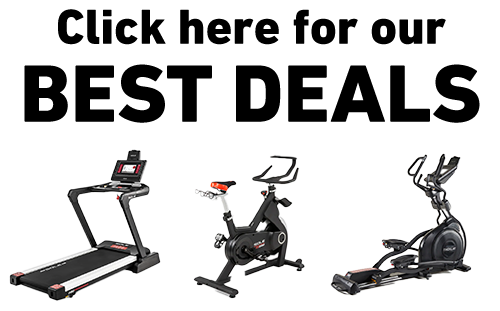Key Takeaways
- Workouts release neurochemicals like endorphins and serotonin - which improve mood, reduce stress, and alleviate anxiety.
- Excessive exercise can lead to physical injuries, hormonal imbalances, and mental health issues like anxiety and mood swings.
- SOLE’s premium fitness equipment like treadmills helps you stay active and improve wellness from the comfort of your home.
Hey fitness fam and curious minds! Ever wondered why you feel like you’re on top of the world after a workout?
Believe it or not, it’s not just the endorphins talking (though they do deserve a shoutout!). There’s an amazing connection between flexing your muscles and how it can help contribute to boosting your mental health.
|
At SOLE, we're proud to offer the best exercise equipment for your home or gym. Our machines like treadmills, ellipticals, and exercise bikes are built to meet the highest quality and performance standards - perfect for fitness enthusiasts at any level. |
Exercise & Mood Enhancement: The Science
When you exercise, your body releases neurochemicals like endorphins, serotonin, and dopamine - they help reduce stress, anxiety, and depression.
- Endorphins: Often referred to as "feel-good" hormones, they act as natural pain relievers and mood enhancers.
- Serotonin: This neurotransmitter regulates mood, and its levels increase with physical activity.
- Norepinephrine: Exercise increases norepinephrine levels, which can improve cognitive function and stress response.
- Endocannabinoids: These compounds mimic the effects of THC and are linked to feelings of euphoria and well-being during and after exercise.
Exercise: The Brain’s Supercharger
Regular exercise does more than just make you feel good - it acts like a supercharger for your brain.
A comprehensive study by NCBI highlights the health benefits that mental health and fitness professionals should emphasize to their clients, including:
- improved sleep,
- increased libido,
- better endurance,
- stress relief,
- mood enhancement,
- more energy and stamina,
- decreased fatigue,
- heightened mental alertness,
- weight loss, and
- improved cardiovascular fitness.

Regular exercise like running and hiking can also improve your bone density (infographic courtesy of the CDC).
The Dangers of Overdoing Exercise
Compulsive exercising or overtraining can be detrimental, both physically and mentally.
|
Physical Health Risks of Over Exercising |
Mental Health Risks of Over Exercising |
|
|
Medline Plus warns that exercise can shift from a chosen activity to a compulsory one - potentially becoming addictive.
If exercising no longer brings joy if skipping a session induces guilt or anxiety, reassess and start slow.
Finding the Right Balance
Finding balance is about mixing physical activity with what feels good. Whether it’s yoga, dancing, or jumping rope, if it gets you moving and smiling, you're on the right track.
Exercise doesn’t need to be a chore - start with the physical activities you already enjoy and build from there.
Final Words
The link between mental well-being and exercise is both real and spectacular.
Exercise is about more than just getting fit or building muscle - it's a celebration of what your body and mind can achieve as a team.
While you’re at it, check out SOLE Fitness equipment - there’s a range of premium quality treadmills, ellipticals, exercise bikes, and more!

Frequently Asked Questions (FAQ)
How does exercise improve mental health?
Exercise boosts neurochemicals like endorphins and serotonin, which reduce stress and improve mood, helping combat anxiety and depression.
What are the risks of over-exercising?
Overtraining can cause injuries, fatigue, hormonal imbalances, and mental health challenges like irritability or anxiety. Balance and recovery are essential.
Can SOLE equipment support mental wellness?
Yes, SOLE’s ergonomic and high-quality machines like treadmills, ellipticals, and exercise bikes make staying active convenient - helping you achieve both physical and mental health benefits.
How do I avoid exercise burnout?
Focus on enjoyable activities, listen to your body, and mix intense workouts with restorative ones like yoga or stretching.
What types of exercise are best for mental health?
Any movement that brings you joy! Running, dancing, or yoga are excellent options for boosting mood and reducing stress.
This post was written by Laison Dunnavant, SOLE Instructor.




Leave a comment
This site is protected by hCaptcha and the hCaptcha Privacy Policy and Terms of Service apply.